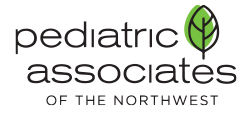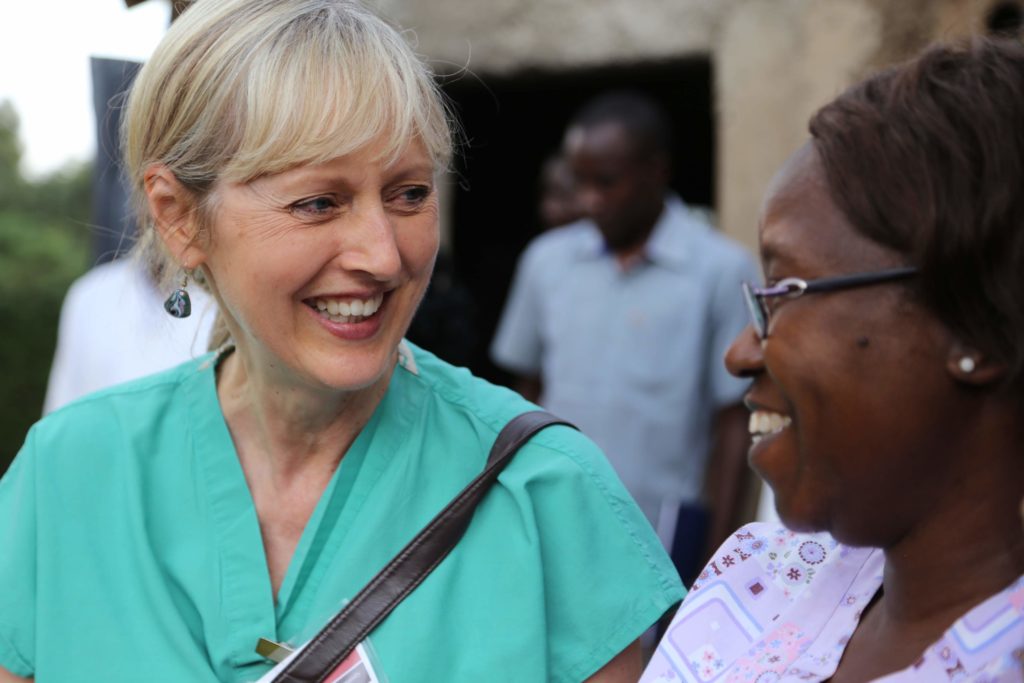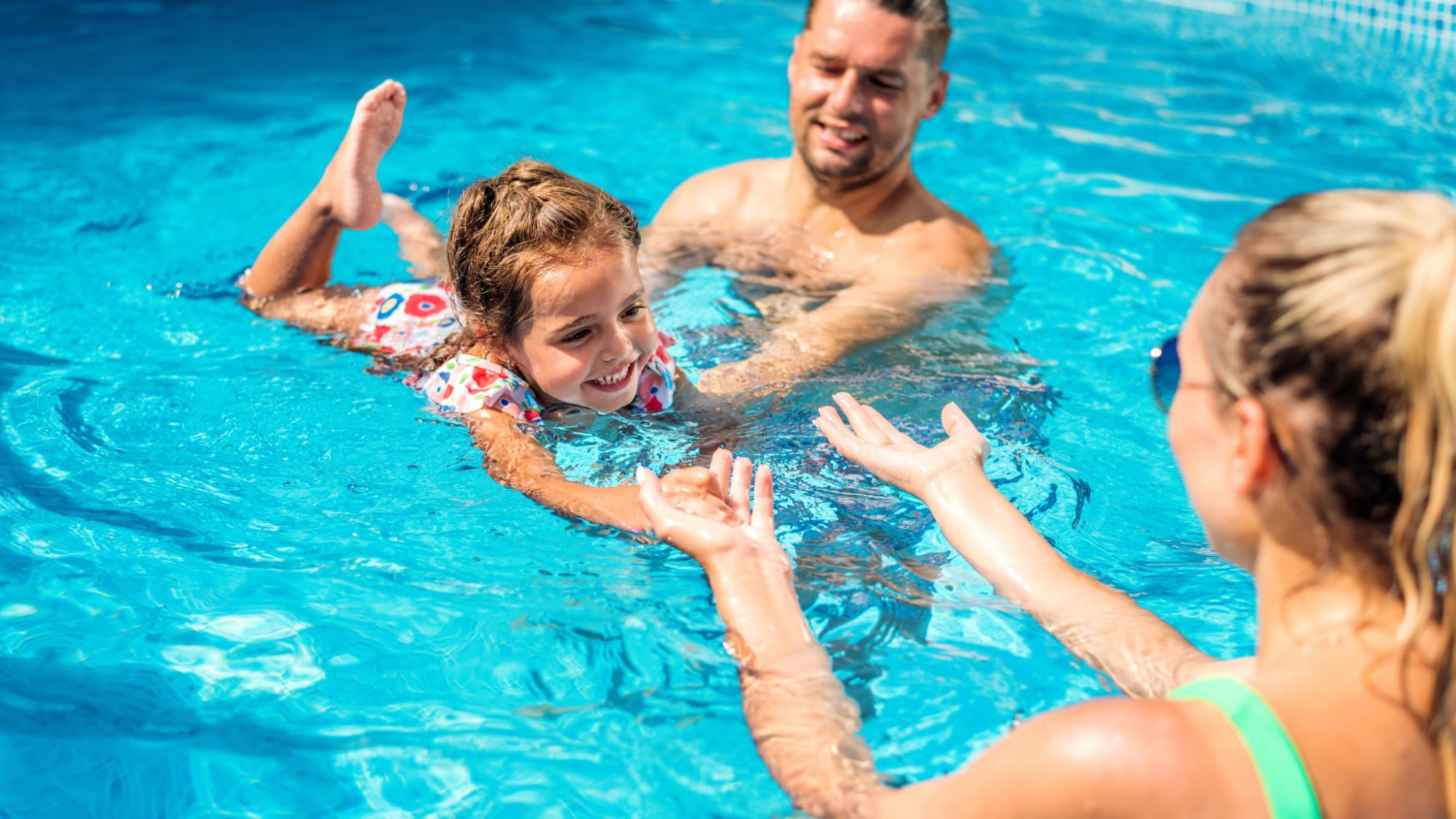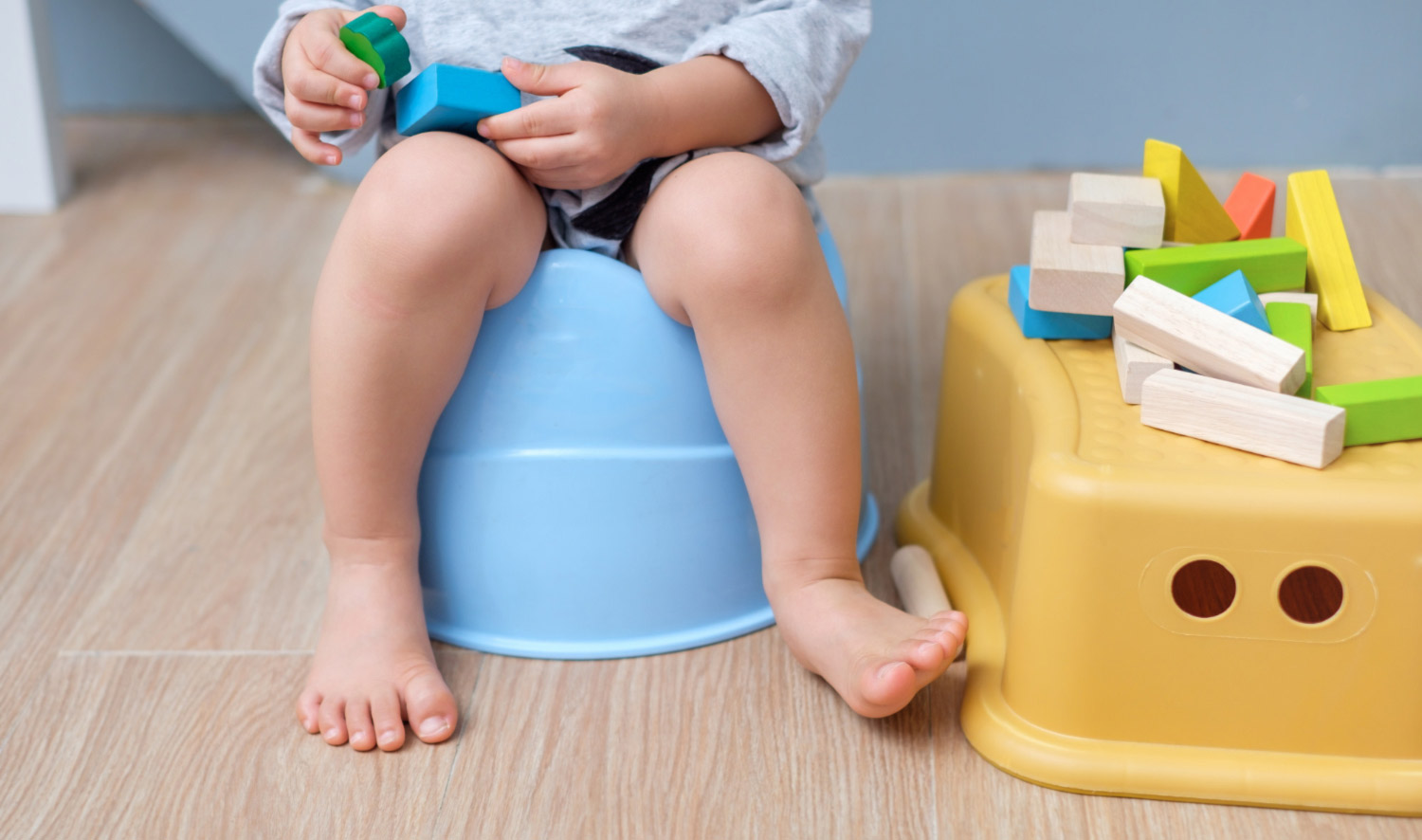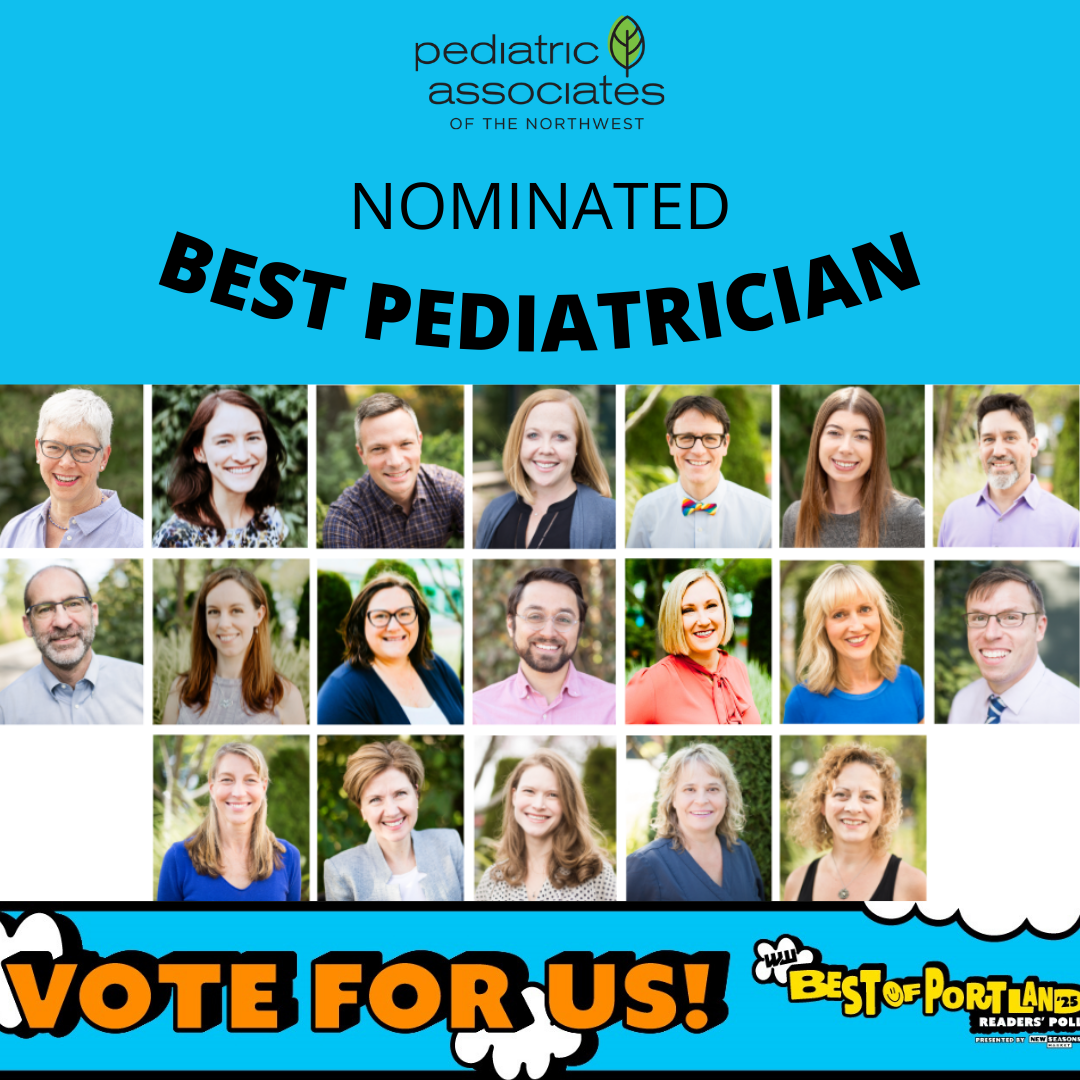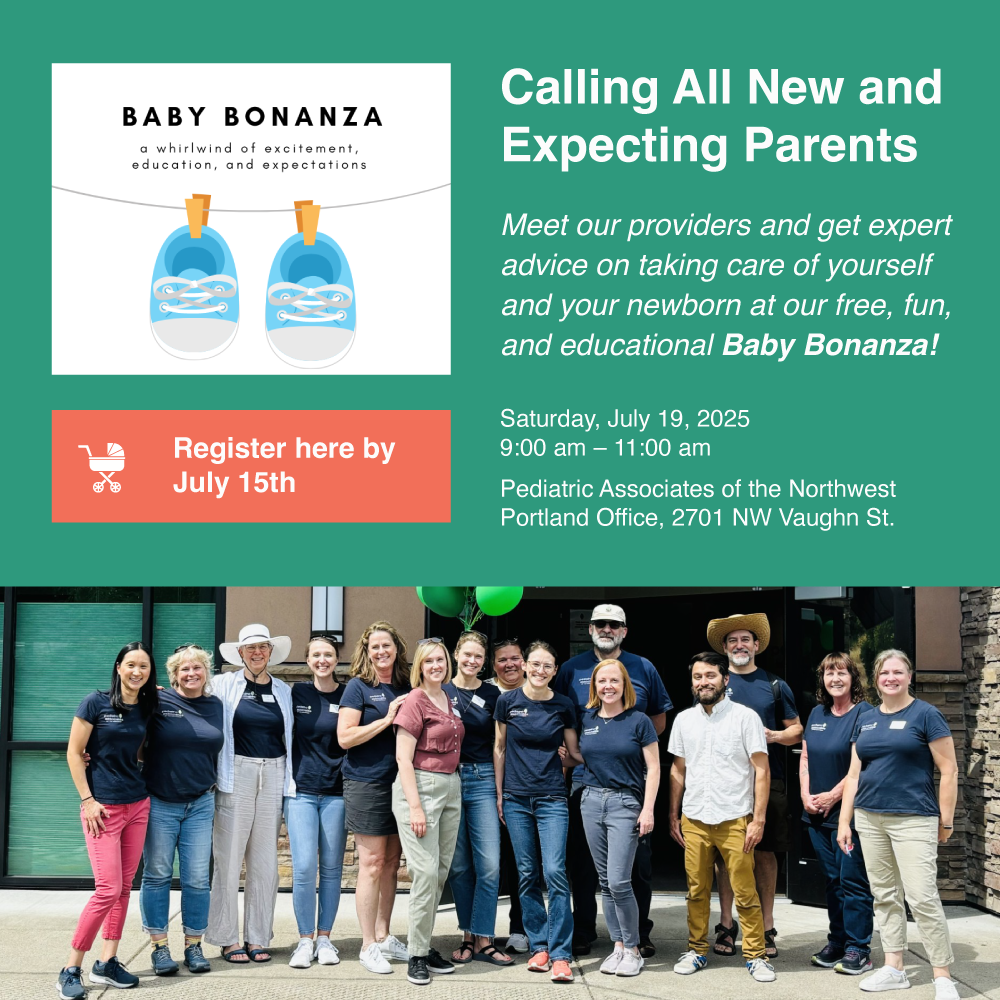This past April, Dr. Evans-Smith, Dr. Rosenbloom, Dr. Buerk, and triage nurse Lee Draper traveled to Makhonge, Kenya as part of a medical team. They provided care to 1,000 adults and children in just 5 days. They also partnered with Friendly Water for the World to purchase and install 16 water filters for the community, ensuring access to clean water. Although our pediatricians and nurses have served on similar medical trips around the world for the past 22 years, their interactions and experiences in Kenya have left a lasting impact on them. We asked each of them to share their personal reflections about this year’s trip:
1. What was the most enjoyable part of the trip for you?
After working in clinic all week, we spent a few days as tourists in and around Nairobi. We visited the David Sheldrick elephant orphanage. It was inspiring to see all the work that is dedicated to rescuing baby elephants. There are so many threats to their existence and it is great to see how dedicated these teams are to saving them.
2. What was the most impactful part of the trip for you?
Access to healthcare in the area we were working is limited and many of the patients we saw had conditions that could be easily helped with the medications we were able to provide.
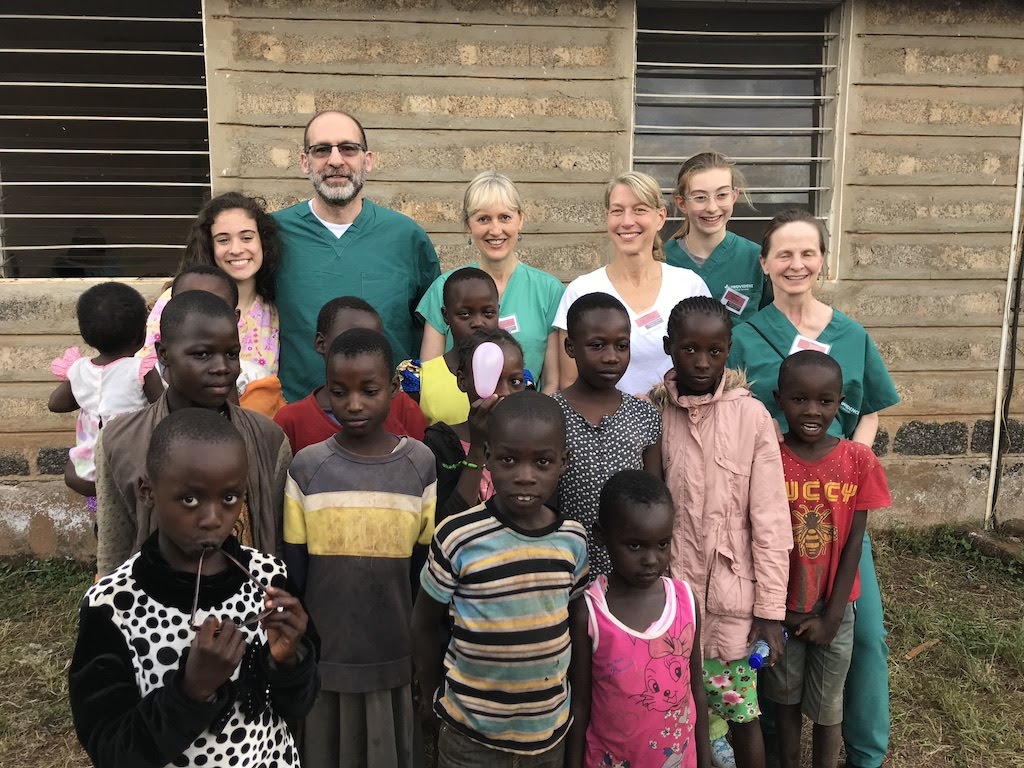
3. Is there something that you experienced or saw that you wish others could understand?
In the U.S., we hear the statistics about how many children die each year from malaria. Seeing the people fighting the disease first hand was impactful. Projects as simple as providing mosquito nets significantly reduce the rates of disease.
4. How has this trip influenced you?
Trips like this are always a great reminder of how fortunate we are to live in a developed country. Every morning when I take a shower I think of the people living in the village where we worked. Most people there had to walk a mile or more to fill their jugs of water for the day. I am grateful to have easy access to food, water, shelter, medicine, etc. Not everyone has that luxury.
5. What did it mean to you to have your daughter along on the trip too?
Having my daughter with me made the trip so much more fun. I got to see a side of her that I have not seen before. She worked hard and had fun doing it. Every day she was so excited to see the children at the clinic and has missed them greatly since we left.
1. What was the most enjoyable part of the trip for you?
I love travelling with the people I work with. Living and working together 24/7 is very different then our typical day at PANW. It was so much fun hanging out with Drs. Rosenbloom and Evans-Smith!
2. What was the most impactful part of the trip for you?
The patients (no matter which country) always leave a lasting impression. Some I will never forget and will continue to wonder how they are doing. I also had an amazing interpreter this trip. She was a local teenager who was bright, smiling, and super-efficient. We had a good time together!
3. Is there something that you experienced or saw that you wish others could understand?
Every trip that I go on reaffirms the fact that clean water makes all the difference in health around the world. Solutions for this would change the face of world health.
4. How has this trip influenced you?
This was the first medical trip for my youngest daughter. The travel day was long and the first few days were very busy so I wasn’t sure how she would feel about the whole thing (not to mention the lack of wifi) but she jumped in, worked and before we even came home was talking about going on the next trip. It is always great to go on these trips but it was amazing to experience it with my daughter!
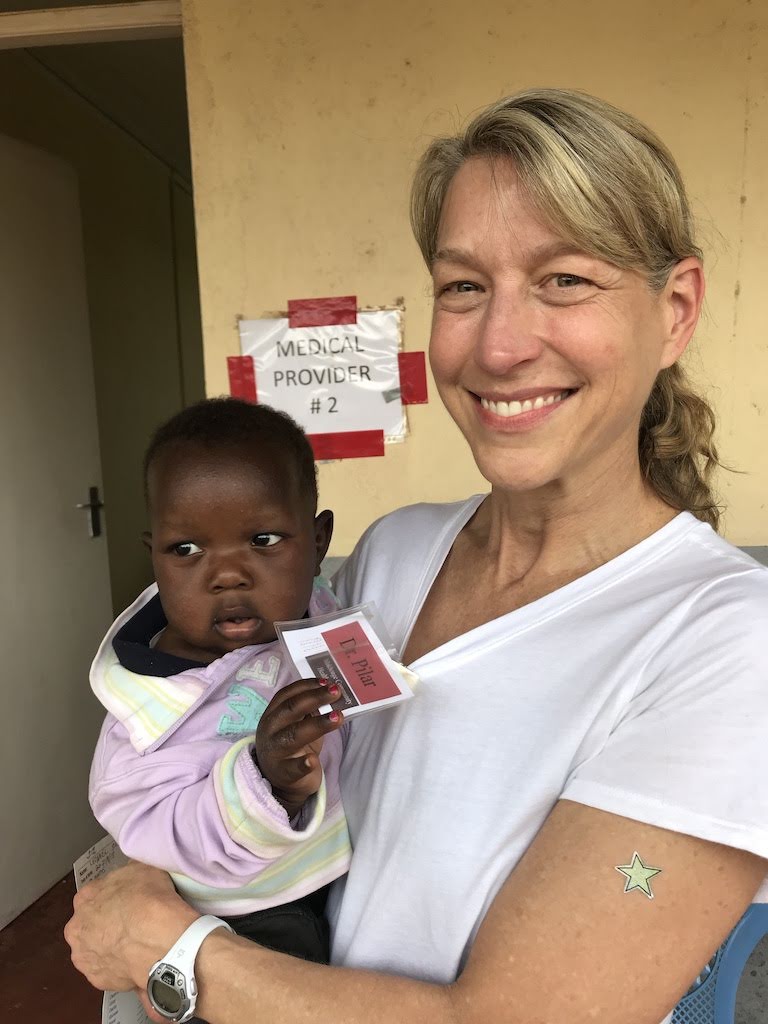
Lee Draper, Triage Nurse
1. What was the most enjoyable part of the trip for you?
I really enjoyed seeing a different part of the world and working with a different group of people.
2. What was the most impactful part of the trip for you?
The response to the menstrual health classes! That was truly a huge surprise to me. I am still being punished by my 16 year old for bringing up the subject years ago. These women were SO appreciative – pushing into the classes, applauding and hugging afterward. On one day, security needed to be called because there was a mob of women from the community who were not patients of the clinic but who had heard about the class and were anxious to come to it. It was great fun and working with the interpreter to teach the class was a kick.
3. Is there something that you experienced or saw that you wish others could understand?
I think what was surprising to me was the patience demonstrated by the group of people we were seeing. Here at home, there seems to be a rush to have things done and the sooner, the better. We would arrive on the bus at 7:30 am and there would already be a parking lot full of people anxious to be seen. These same people, with elderly grandparents and infants would still be there at the end of the day, patiently waiting. After a couple days, I saw that the women were fine with waiting, appreciative of the information and would wait forever if needed – graciously. And then I would see these same women, working at their stand on the street in the evening when we passed by.
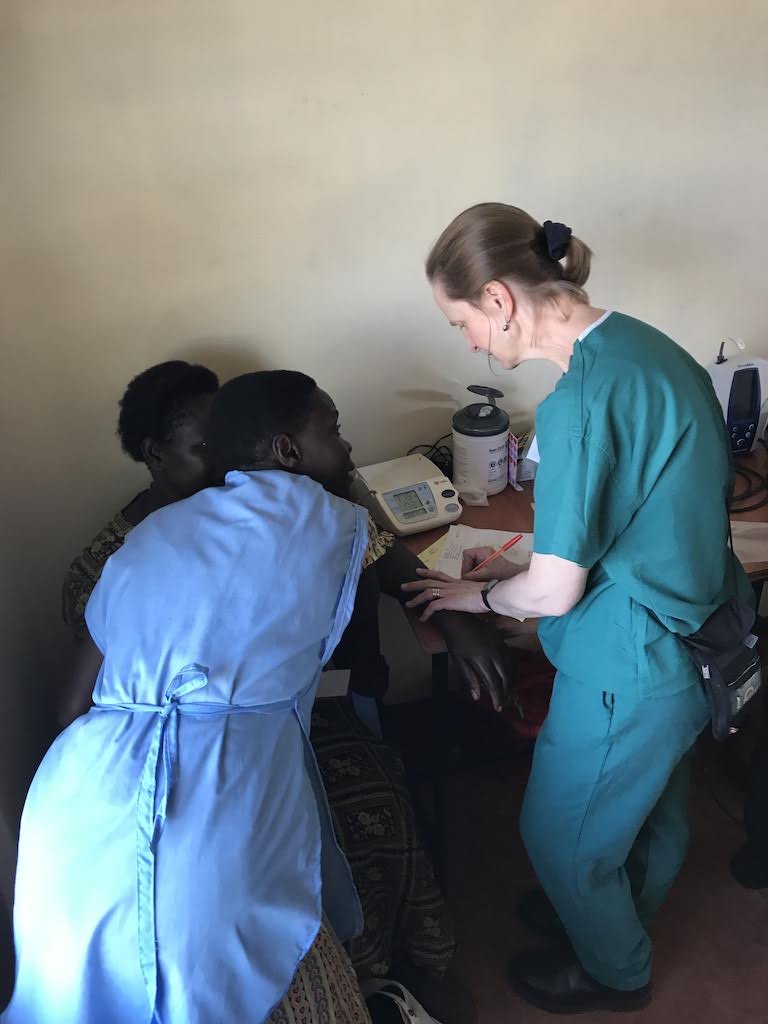
4. Tell us about a patient interaction that stood out to you.
There was this one child we thought was almost certainly dying – not breathing, seemingly unconscious. We raced him to the front of the line and through the clinic to see Dr. Rosenbloom. We then remembered that we needed translators to discuss with Mom what was happening so there was a bit of a delay. Dr. Rosenbloom asked Mom (through the translator) when the child’s current issue started. Mom said he’s always been this way. Ultimately, Dr. Rosenbloom discovered the child had sleep apnea, nudged him, woke him up and all was well. It got our adrenaline racing!
5. How has this trip influenced you?
I have always worked in public health (with the exception of stints in pediatric triage) and I’ve always thought the benefit to having a nursing degree would be working with folks in different countries. This was an opportunity to see that it was everything I thought it would be. It was inspiration to plan for another trip soon too! I’m SO appreciative of the opportunity to be included on this trip. The Makhonge community were great to work with-lovely people.
1. What was the most enjoyable part of the trip for you?
I enjoyed traveling with such a group of positive people who share the same desire to help provide good medical care to the underserved.
2. What was the most impactful part of the trip for you?
It is always so wonderful to see what a difference we can make in just one week. Yes, there are chronic problems that need more follow up, but there are also many ways we can help out like providing a pair of glasses, pain medicine, an antibiotic for an infection, or malaria pills.
3. Is there something that you experienced or saw that you wish others could understand?
It’s possible to serve others while on “vacation” and still have an amazing experience and come home exhilarated.
4. Tell us about a patient interaction that stood out to you.
Our last day at the clinic, a 6 year old boy and his grandma came into
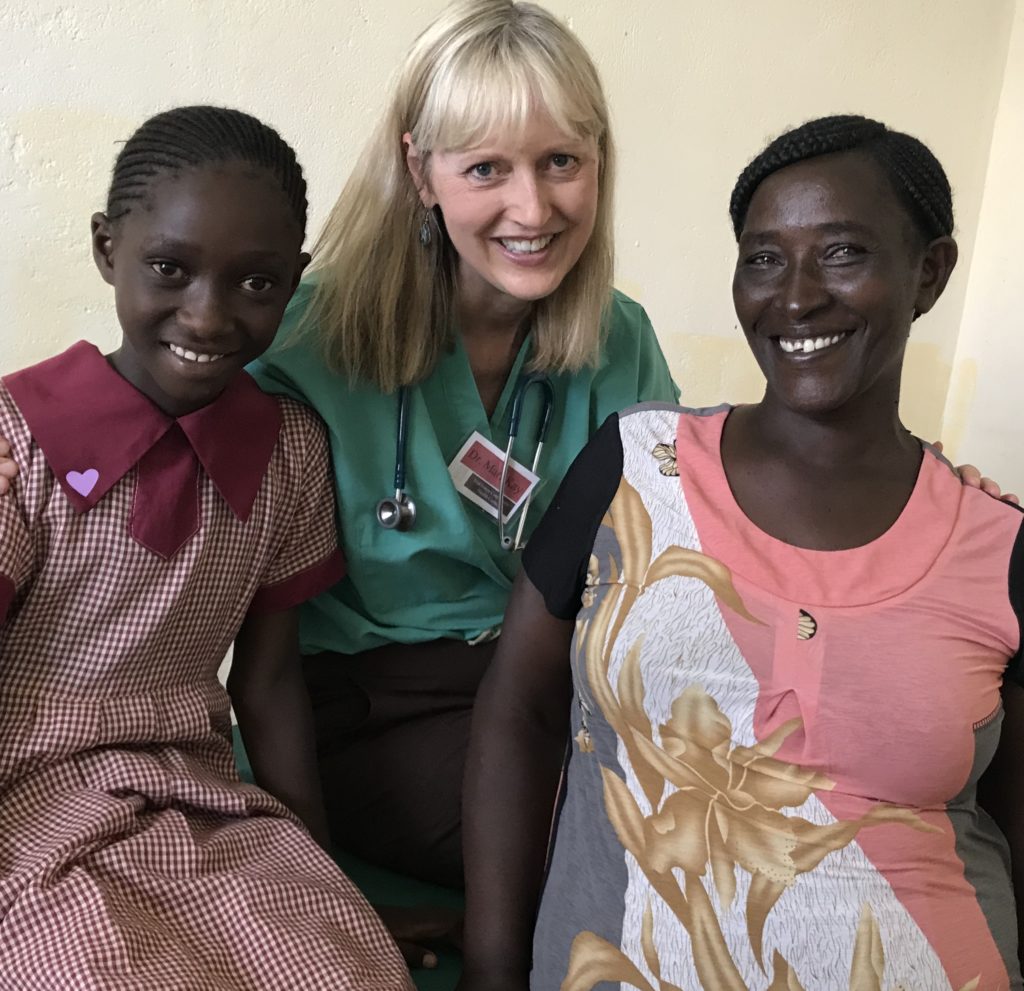
my exam room. She told us that the boy’s mother died, and his father disappeared, so she was now caring for 7 grandchildren, which was extremely difficult. She did not even have the funds to purchase mosquito nets. The boy’s clothes were barely rags, with the seams torn. He came in with a history of fever, malaise, headache, abdominal pain, joint aches, and vomiting- classic for malaria, which we confirmed in our lab. I wrote her a prescription to pick up in our pharmacy and gave the boy water and some Tylenol. Then I went off to find the Makhonge Clinic Director to see what could be done about a net for them. He confirmed they could pick one up down at the health center on their way home. At the end of the visit I put a little moose beanie baby with orange ears into the boy’s lap. The grandmother immediately took it from him and held it in her lap. I asked if we could get a photo of them together, and again placed the beanie baby in his lap. The grandmother took it again. I had never in all my years as a pediatrician seen a parent take away a comfort toy after a blood draw. At first, I imagined that she was just holding it for him, since he was pretty sick and out of it. Then I thought maybe she was planning to sell the toy for food. And then I wondered if she just wanted that toy for herself, as she seemed to cuddle up with it quite a bit. Then it dawned on me how all these thoughts were judgements on my part, and that I really have no idea why. But I do know this grandmother was doing her best by bringing the child to see us. I was reminded that most people really are trying to do their best and have good intentions and we need to start from this place.
5. How has this trip influenced you?
I am intentional about bringing team members from all age groups, this one included. We had Dr. Buerk’s daughter (14 years old) on up to our team dietitian, Vicki Stave who is 70 years, and a good mix of everything in between. The positive generational interactions are inspirational and have helped me realize the importance of spending quality time with others outside my own age group to see their perspective on life.
Related Posts
- The Ultimate Guide to Summer Safety
- Tips and Tricks For Toilet Training Your Toddler
- Vote For Pediatric Associates of the Northwest As The Best Pediatrician Office
- Recognizing Asthma: How to Minimize Symptoms & Basic Management Tips
- Baby Bonanza 2025: A Lively, Learning-Filled Morning for Growing Families
